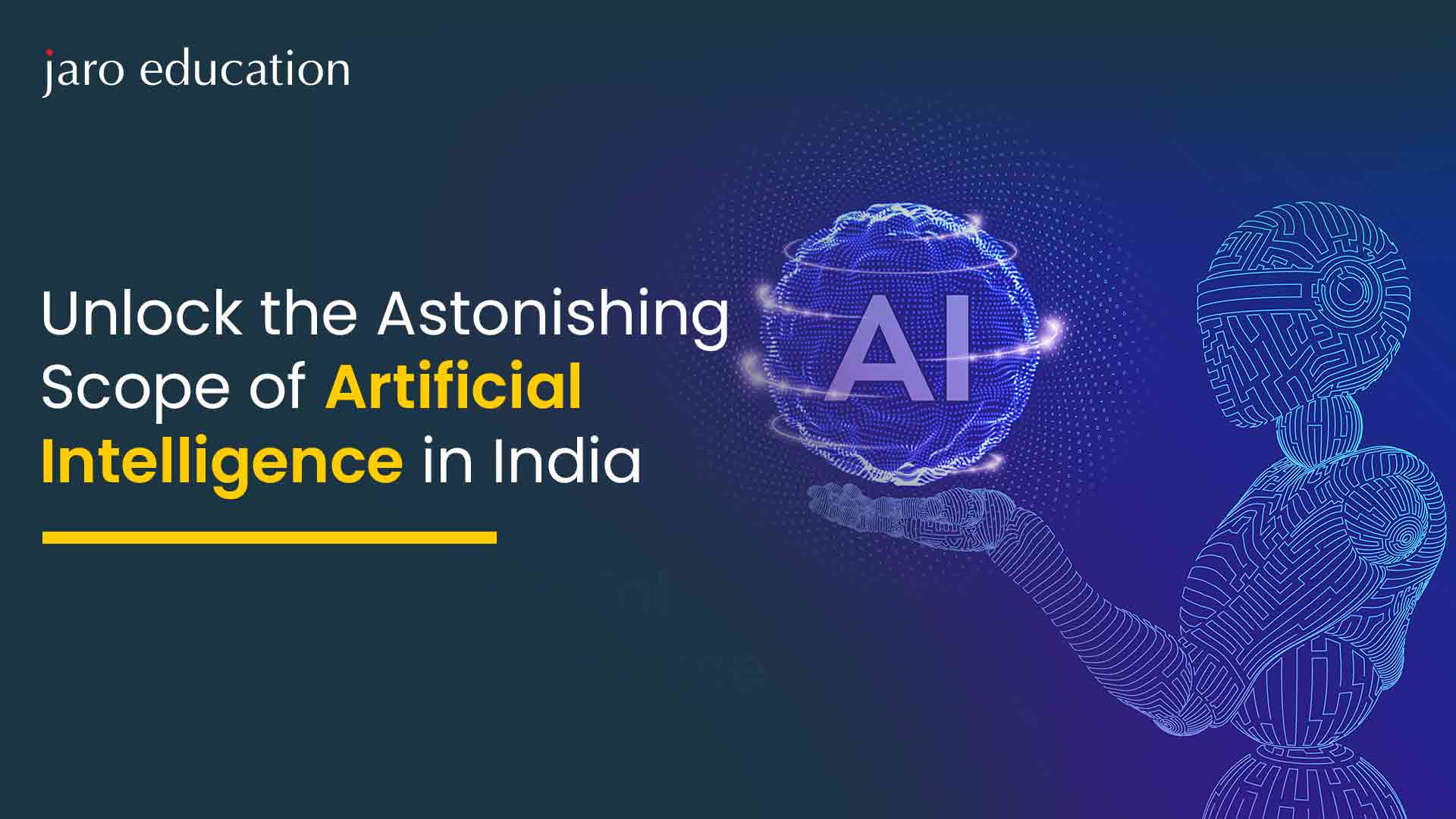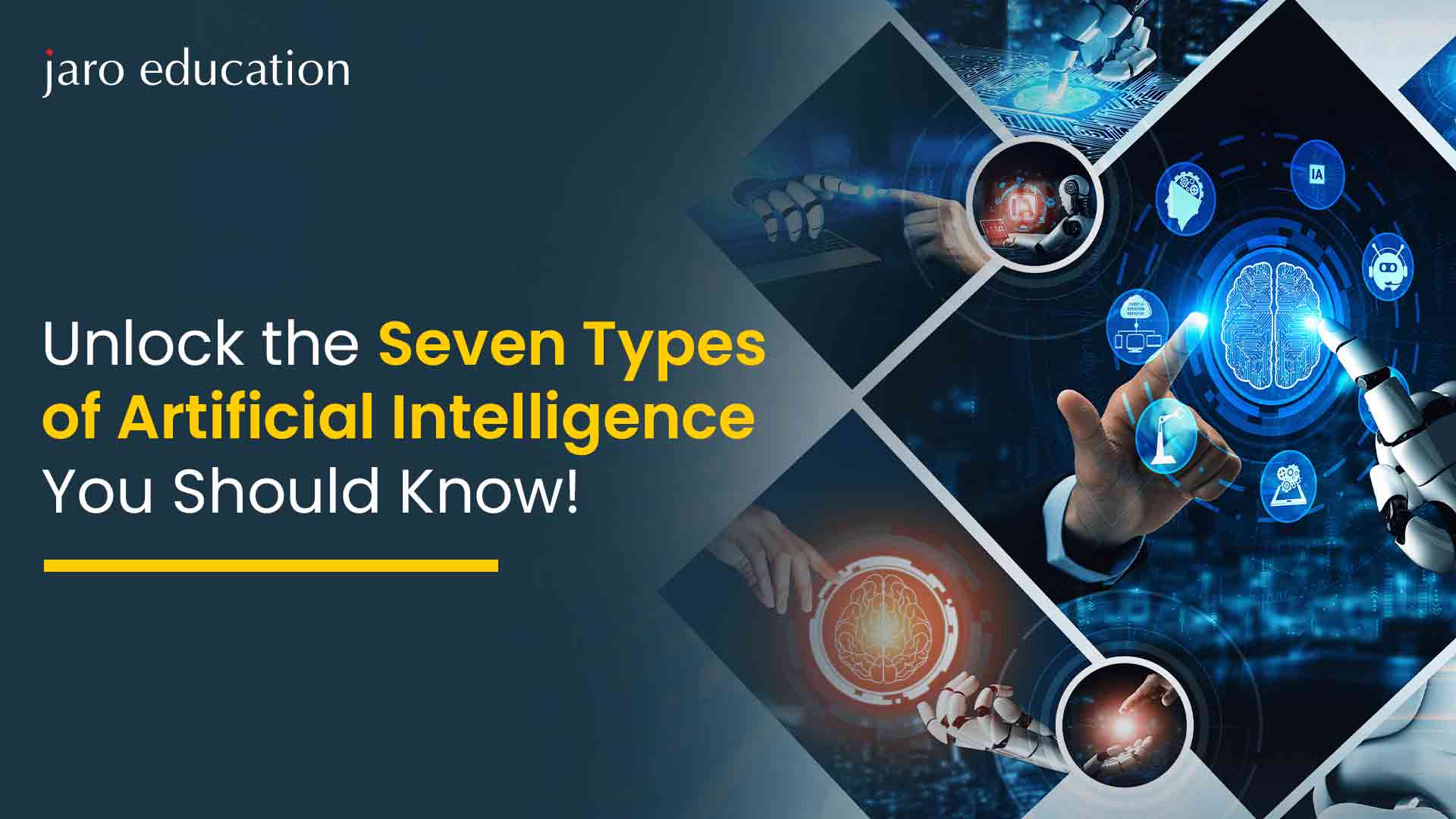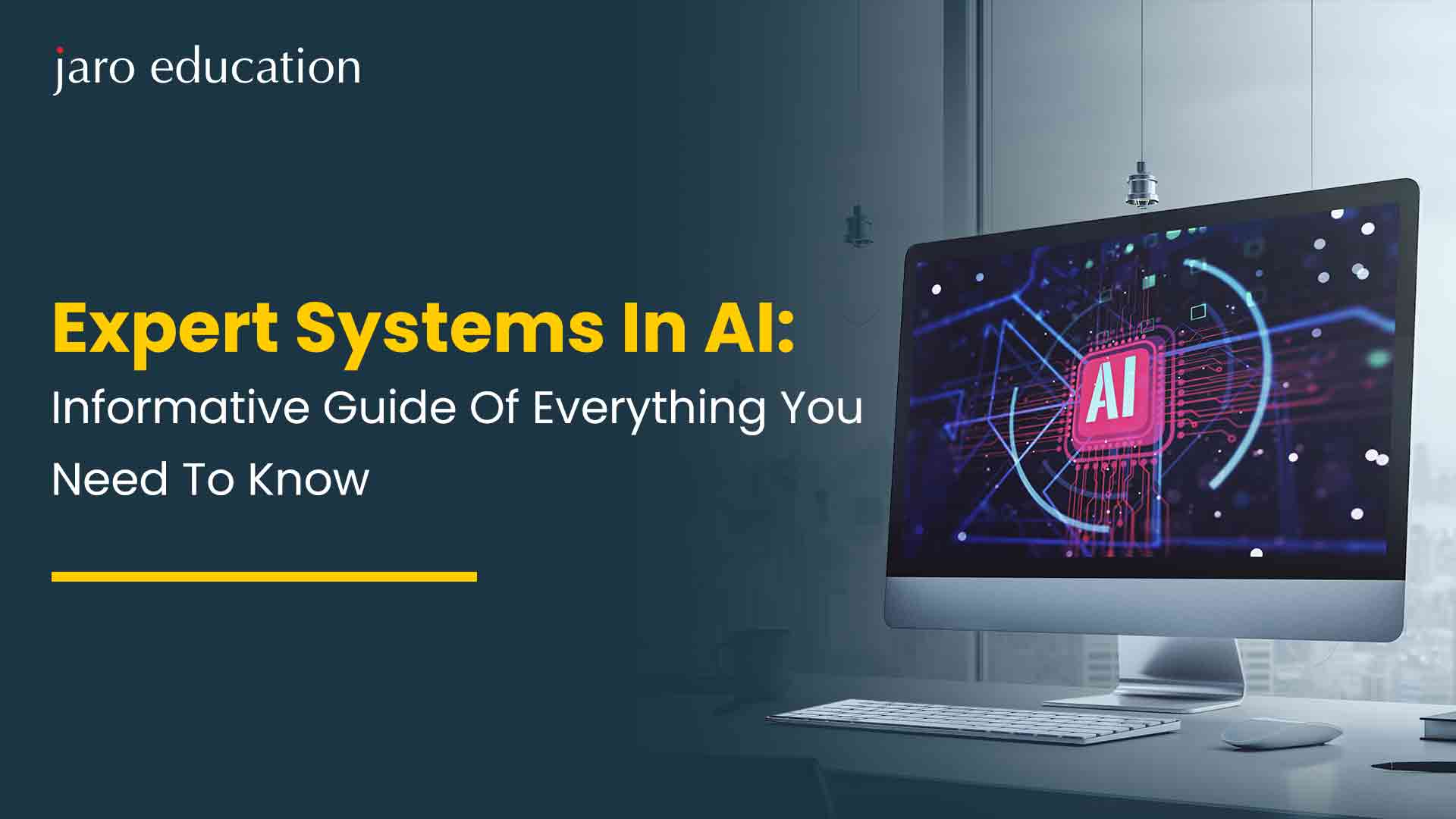Advantages And Disadvantages Of AI: Unlocking Opportunities And Addressing Challenges
Table of Contents
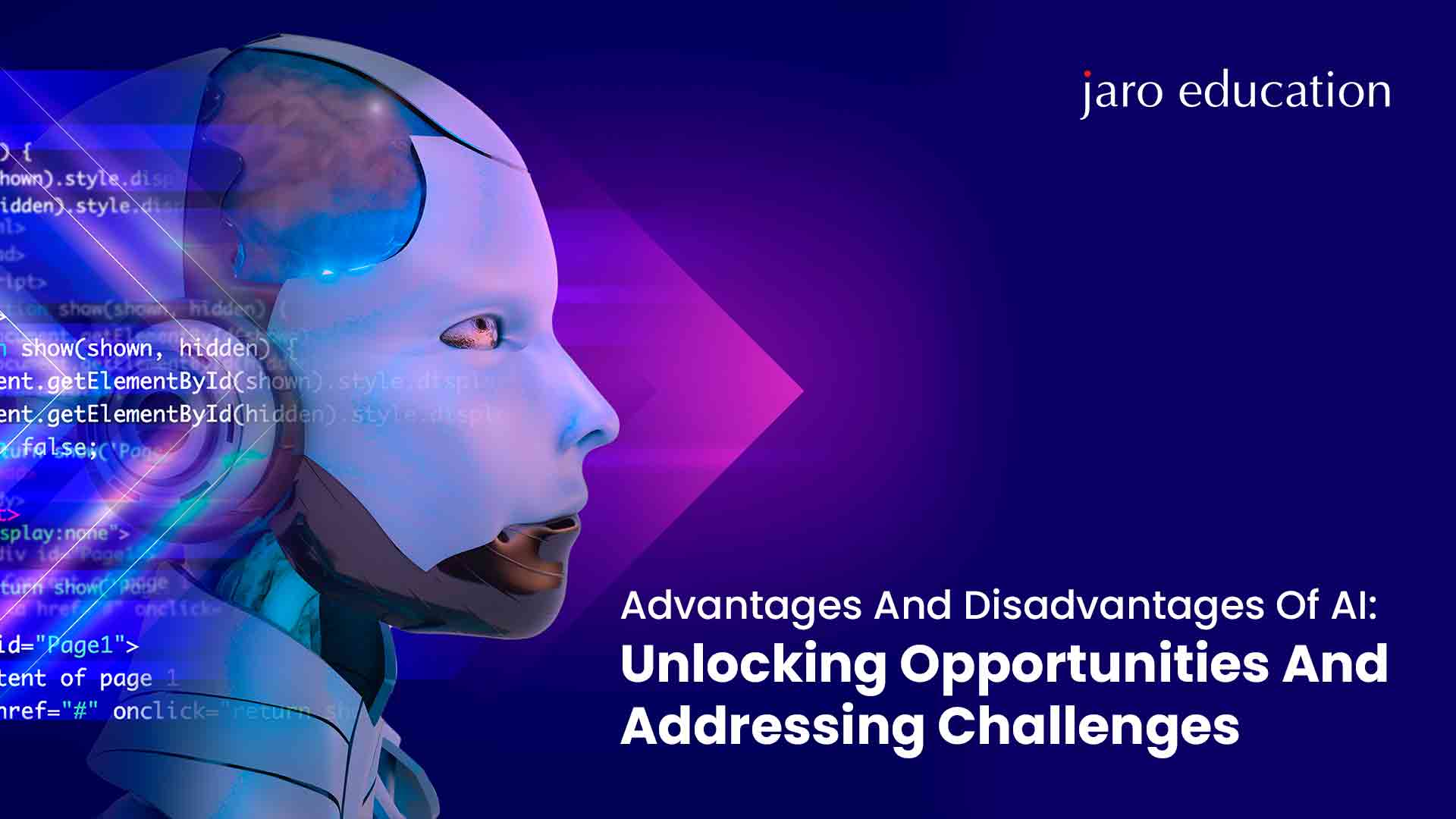
- jaro education
- 2, August 2024
- 11:00 am
The advantages and disadvantages of AI aside, it is agreed upon that Artificial Intelligence has revolutionized every industry. It has played a big role in automating processes and creating innovative solutions to problems like redundancy and inefficiency. The biggest impacts are in healthcare, finance, manufacturing, digital marketing and retail.
Healthcare
Healthcare has adapted to changing times and harnessed technology for its backend operations. It has transformed diagnostics, treatment and patient care. There are many advantages and disadvantages of AI, but in healthcare, AI-driven imaging tools assist radiologists in identifying health problems. In personalized medicine, AI tailors treatments based on individual medical histories stored in vast databases. Virtual health assistants and chatbots help engage with patients online and streamline administrative tasks.
Finance
In finance, the pros and cons of Artificial Intelligence and tech have worked for security and risk management. Machine Learning models are used for fraud detection because they can pick out unique and suspicious patterns from a large volume of transactions, in real-time. AI is used for market predictions and for creating a strong investment portfolio. They are also modeled to provide financial advice and other services. Just like other industries, AI is also used for customer service, and handling inquiries.
Manufacturing
The advantages and disadvantages of AI are considered and implemented in manufacturing and the production process to improve efficiency and the quality of the products. AI is trained to monitor and optimize the entire production process so that the company can reduce waste and improve efficiency. These machines can also be introduced to identify defects, ensuring high-quality output. They can also forecast failures and minimize them, thereby reducing manufacturing disruptions. Precision and speed are two things AI-driven machinery aims to achieve in the manufacturing sector.
Digital Marketing
Content generation and market research are two aspects of digital marketing where the advantages and disadvantages of AI have strong roots. AI works with existing and real-time data to understand consumer behavior and create targeted campaigns that work for specific audience sectors. It also works to understand how much money to invest in ad spending so that losses can be minimized. AI can be used to generate articles, product descriptions, website content and more. The integration aims to increase the time humans spend on big-picture ideas such as brand strategy.
Retail
Retail AI models aim to provide personalized fashion and lifestyle recommendations to customers based on their purchase history. They are also an integral part of inventory management and customer care. With the growth of e-commerce platforms, AI has more and more of a role in studying consumer behavior and helping brands push the right products to them. The advantages and disadvantages of AI can go as far as optimizing store layouts and keeping track of every piece of stock to avoid over or understocking.
There are many advantages and disadvantages of Artificial Intelligence, but AI’s role in these industries is to try and enhance their operations efficiently and accurately. They were introduced to save time and effort on redundant tasks so that people can focus on actionable insights and produce far more precise outcomes.
The Advantages and Disadvantages of AI: Things to know
Artificial Intelligence offers a lot of advantages across industries, transforming operations at the grassroots level. Businesses that quickly adapted to AI and put it to efficient use have experienced a competitive edge in the market and improved their potential for long-term growth and development. Let’s explore the advantages and disadvantages of AI with industry-specific examples.
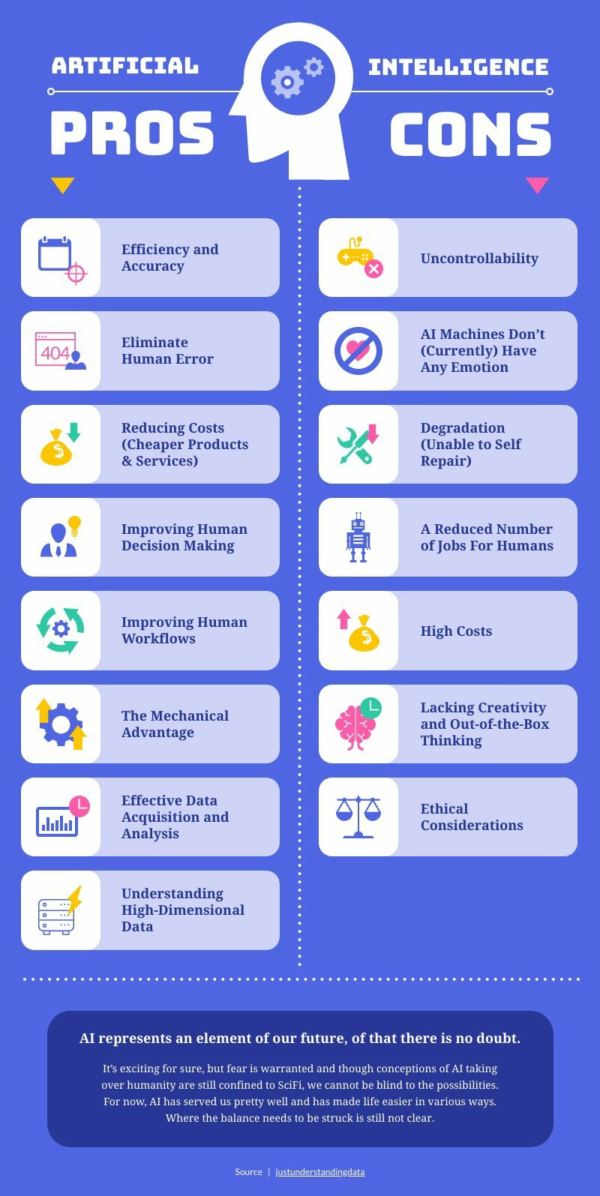
*piktochart.com
The Advantages and Disadvantages of AI: What are the Pros?
AI has taken over several industries from automobiles to finance. It provides several advantages to boost their operational efficiency. Let’s take a look at them!
Advantages of AI:
1. Automation:
When the debate comes up between the pros and cons of artificial intelligence, one of the most game-changing pros is its ability to automate repetitive and mundane tasks. Human resources are usually tied up for hours a day doing these mundane tasks. For example, a content intern could be tasked with arranging vast amounts of data from a document to an Excel sheet.
How Can AI Fix This?
This could take hours away from their day. If AI takes over this task, the content intern is freed up to partake in more strategic activities. A bigger example would be in manufacturing companies. Take a car manufacturer. Their AI-powered robots could handle assembly lines and perform tasks with incredible precision. This reduces production time and frees up human resources for bigger roles. AI automation helps reduce errors too, improving credibility. Customer service is also largely automated, with basic inquiries input into the system for ease of access.
2. Enhanced Decision-Making:
AI works with large amounts of data to generate patterns. These patterns can lead to insights about all the stakeholders of the business, giving solid, quantifiable footing for organizations to make decisions. For example, healthcare is a sector where the pros and cons of artificial intelligence can be analyzed.
AI in the Healthcare Space:
One of the pros is it can analyze vast amounts of patient data and assist doctors in making the right diagnosis and creating a treatment plan. Evidence-based treatment plans are way more precise and improve the chances of a proper recovery. In retail, AI helps businesses with consumer behavior, likes and preferences. E-commerce platforms like Amazon use AI to their advantage by analyzing browsing patterns and suggesting personalized products for each customer.
3. Personalized Experiences:
AI enables personalisation to the most minute degree. It can tailor every product, service and interaction between two parties to perfectly match each person’s needs and potential. In the digital marketing space, AI analyzes consumer data on social media in real-time and provides insights about engagement rates, clicks and conversion rates.
How Netflix Uses AI to Its Advantage:
Netflix algorithms use data to keep track of what each user is watching and recommend shows with similar themes or actors, increasing their potential for customer retention. Overall, it makes every interaction with a product or service more and more personal.
4. Efficiency:
Every organization works diligently towards becoming more efficient because that directly translates to more profit potential and long-term growth. AI helps improve operational efficiency by making processes airtight and reducing wastage of resources, output, time and effort.
Logistics and AI:
A package courier company might use AI to determine the best route for all their available deliveries so that they can deliver more in less time. This makes them available for further deliveries while also reducing fuel consumption. Both these aspects save money, help in profitability and credibility, and lead to customer retention. Even spaces like agriculture can work with the advantages and disadvantages of AI and capitalize on the former. AI-powered sensors can monitor soil conditions, while drones can oversee crop production. All this infrastructure helps generate the best yield while being productive and sustainable.
5. Leading Innovation:
New products, services and business ideas can be born out of AI-powered data and insights. In the fintech industry, for example, AI can show the best ways to invest and put together the most solid, fail-proof investment portfolio.
Fintech Harnesses AI:
This way, the success of the client is guaranteed, launching better services for the company. AI can also use market research on, say, a chip company, and find out that people prefer lesser oil content in their chips, with ways to incorporate that into production. This way, companies can cater to the needs of the target audience with new products that are guaranteed to succeed.
The Advantages and Disadvantages of AI: What are the Cons?
In the advantages and disadvantages of AI debate, there is always the other side to consider. There are two sides to the same coin and it is important to know all aspects of it so that your business can make a well-rounded decision about how best to utilize it.
Disadvantages of AI:
1. Job Loss:
One of the most significant drawbacks of AI lies in its main advantage: Automation. Automation takes away the need for an employee to be physically present, thereby leading to the loss of jobs. Even the biggest companies are facing mass layoffs. When we talk about the advantages and disadvantages of AI, this is one major thing to consider.
Automobile Manufacturing and AI:
For example, if the car manufacturing company we introduced above replaces all assembly lines with AI-powered bots, then there will be barely any human labor involved in the manufacturing units. Other industries will mainly face job losses in clerical and administrative roles.
2. Lack of Personal Touch:
AI might have all of the IQ of the world in the palm of its hand but it lacks its counterpart: Emotional Intelligence. While it enhances efficiency and decision-making, it lacks the empathy that humans bring to interactions. This is a pretty big con in the advantages and disadvantages of AI discussion. Healthcare is a major example.
The Other Side of AI and Healthcare:
A healthcare space is much more than just data and diagnostic systems. Patients need the compassion and reassurance that a human interaction with doctors offers. Their patient care experience might be drastically affected if they interact only with AI-powered systems. Although AI can create targeted campaigns for digital marketers, it may miss the refreshing human creativity and emotional connection that can make advertisements more relatable and compelling.
3. Lack of Proper Research and Development in Customer Care:
This is where the scale between the advantages and disadvantages of AI tips against its favor. AI chatbots in customer care often end up unhelpful in complex situations and fail to provide satisfactory responses because of insufficient training and data.
Poor Chatbot Reception:
This can be extremely frustrating for users who want solutions, especially in emergencies like railways or healthcare. Smaller companies especially cannot afford to invest heavily in AI chatbot systems, resulting in subpar performance. Customers often find that chatbots lack the knowledge or context to answer their questions effectively, leading to unresolved issues and dissatisfaction.
4. Innovation vs Human Connection:
AI can be innovative, especially in automotive and finance industries but it can also lead to a loss of trust or credibility. It is still a developing technology with little to no background for most users. This can lead to a sense of alienation for customers.
Do Consumers Trust Self-Driving Vehicles?
Self-driving vehicles might be all the rage in the market but it definitely raises safety concerns because there is no way to be sure. When you look at the advantages and disadvantages of AI, trust is one of the major aspects to consider. How far can AI be trusted to fulfill customer needs?
Final Thoughts
There are many advantages and disadvantages of AI. It offers significant improvements in the efficiency and personalisation of operations. But it is important to understand how to balance the advantages and disadvantages of AI with dynamic and nuanced human-centric issues like safety, credibility and most importantly, job loss. Knowing how to practically incorporate it into operations can offer organizations the best of both worlds.







